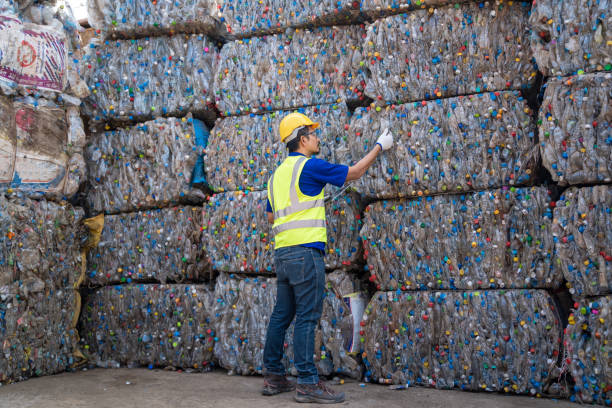In August 2025, in Geneva, negotiations for an international Treaty to address plastic pollution concluded without an agreement. This was a serious setback — but should not be the end of commitments to tackle this issue. It strengthens our resolve to continue advocating for Extended Producer Responsibility as a central tool in tackling plastic pollution worldwide.
Since 2022, Citeo, together with the Producer Responsibility Coalition — a global alliance bringing together nearly 50 Producer Responsibility Organisations from across continents — has been at the forefront of advocating for EPR in the international policy arena. The Coalition serves as a collective voice in Treaty negotiations, sharing expertise, lessons learned, and practical examples of EPR in action. Its members span diverse regions and economies, united by a shared belief that producers must take responsibility for their products throughout their life cycle.
To support this advocacy, the Coalition has published a series of position papers outlining the fundamentals of EPR, examples of successful adaptation worldwide, and the principles for effective implementation. These principles are clear :
First, EPR requires a robust and transparent regulatory framework: without clear legal responsibilities, measurable targets, and strong accountability, systems risk fragmentation or inefficiency.
Second, it depends on dedicated and sustainable financing: producer fees are not a tax, but a specific fund ensuring stability, independence from state budgets, and eco-modulation to reward sustainable design.
Third, local flexibility is essential: while grounded in shared objectives, EPR must adapt to each country’s infrastructure, social realities, and institutional frameworks.
Fourth, EPR can create business opportunities, leveraging the efficiency of the private sector to coordinate supply chains, invest in R&D, and build circular economies.
The Coalition also insists on addressing one of the most complex realities of global waste management: the integration of the informal sector. In many low- and middle-income countries, waste pickers are the backbone of recycling systems. Too often, however, they face unsafe conditions, lack recognition, or are excluded from decision-making. By integrating informal workers through fair contracts, inclusion in governance, and recognition of their contribution, EPR systems can be both effective and equitable.
Within this scheme, PROs play a central role: beyond collecting fees, they provide strategic guidance, track performance, coordinate actors, and ensure transparency and alignment with national goals.
That is why today, our Coalition officially reaffirms its commitment: whatever the outcome of international negotiation, The Producer Responsibility Coalition will continue to advocate for EPR across all relevant platforms. Our commitment is to ensure that EPR becomes a global reality, contributing to a world where plastic products are more prevented, reused, and recycled.
And as a coalition of practitioners with decades of experience, we stand ready to contribute technical knowledge, operational expertise, and collaborative momentum to this global challenge with all the international institutions, organisations, and coalitions involved and interested in the development of EPR.
